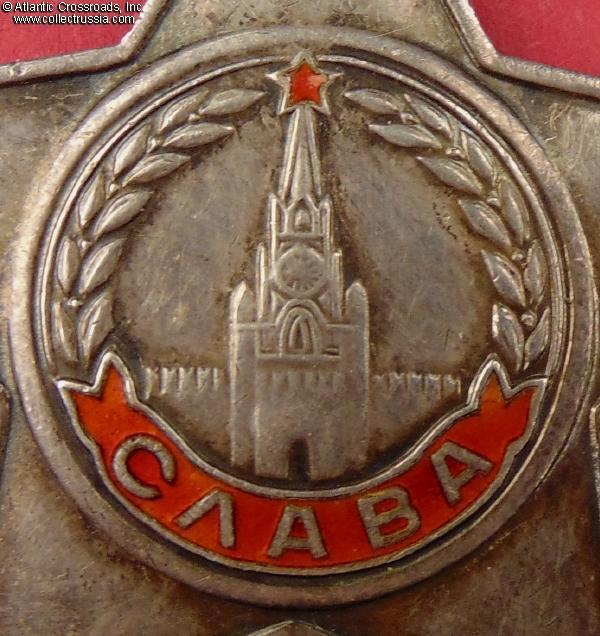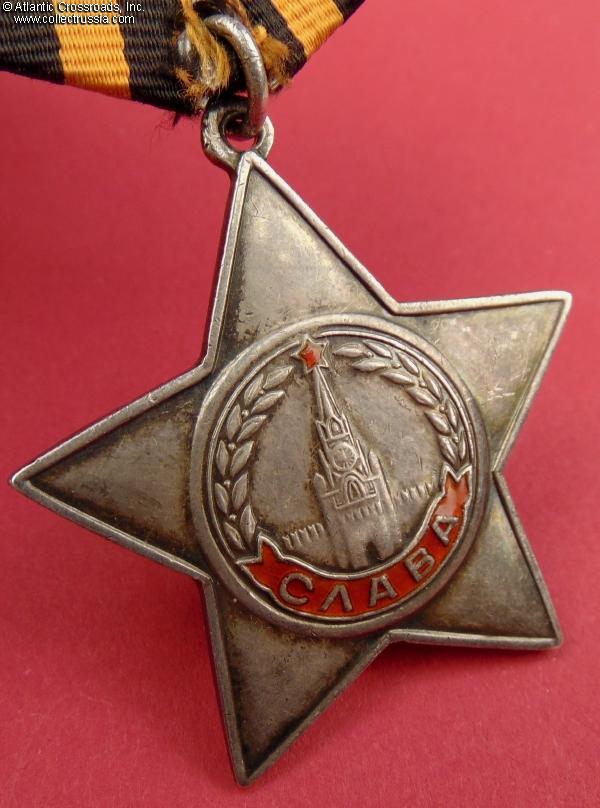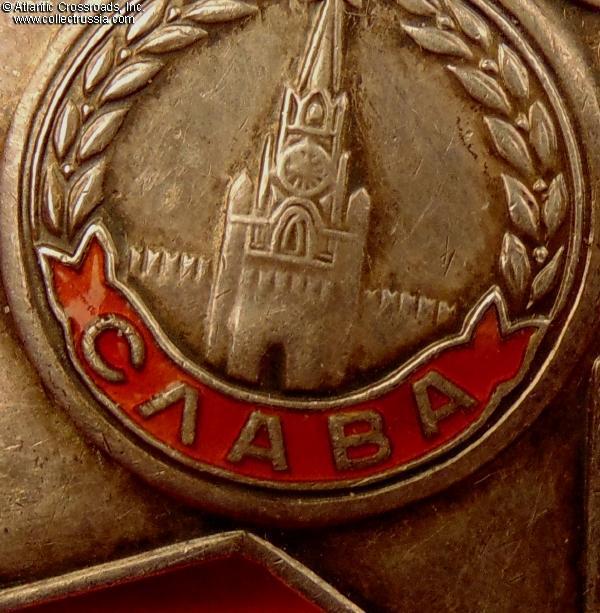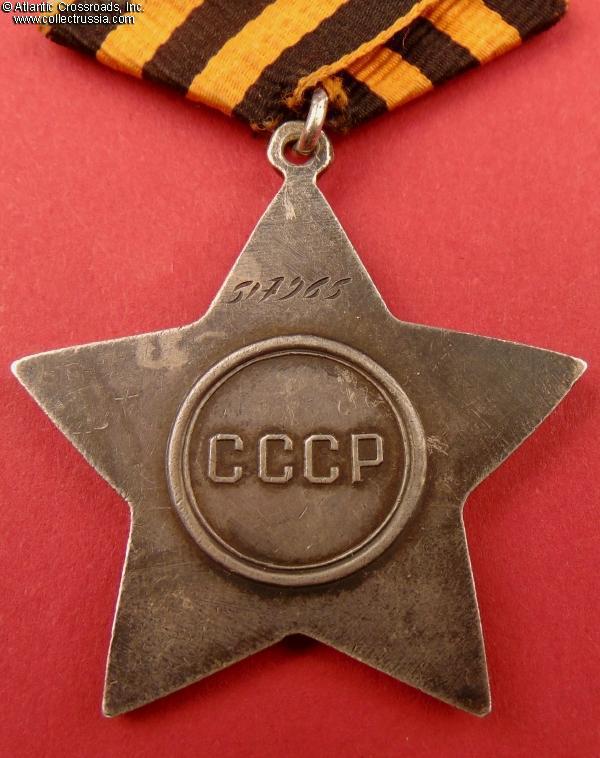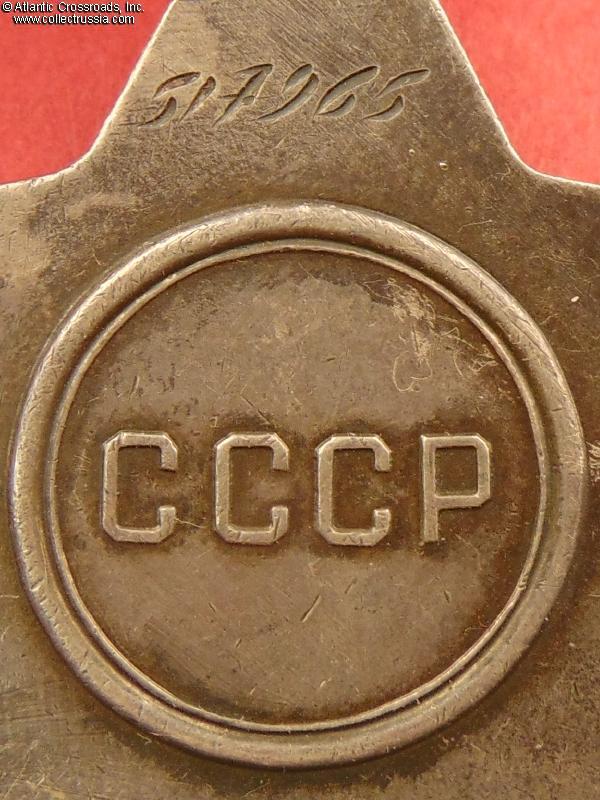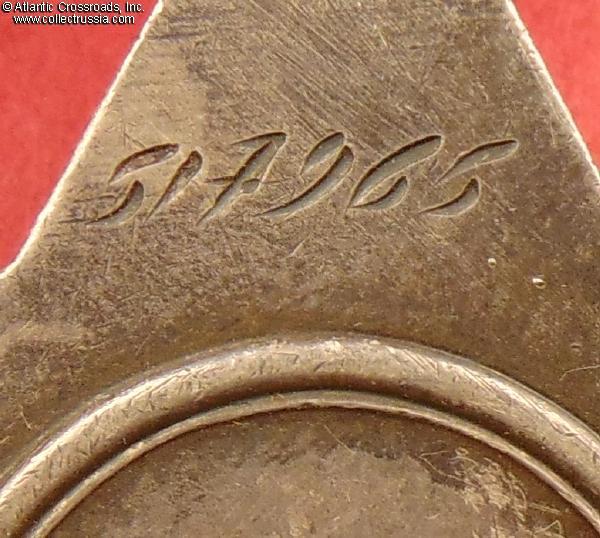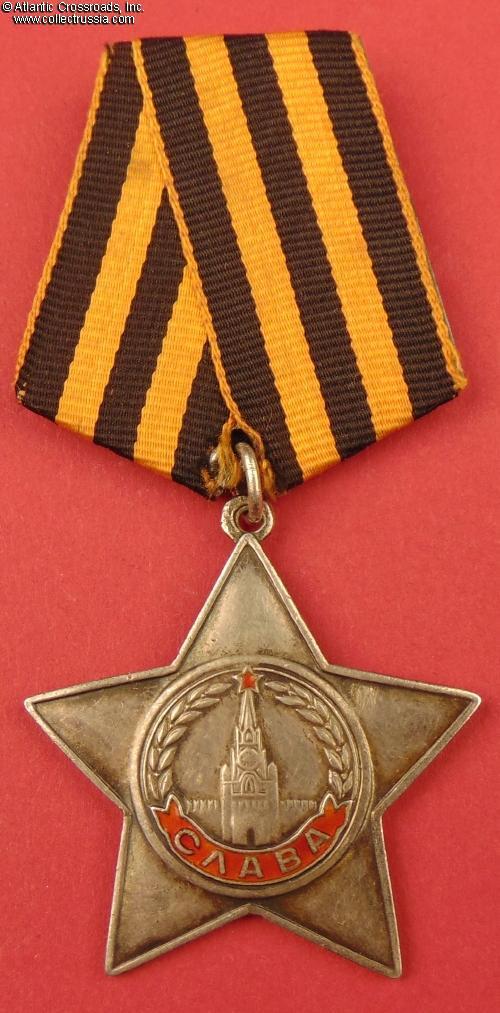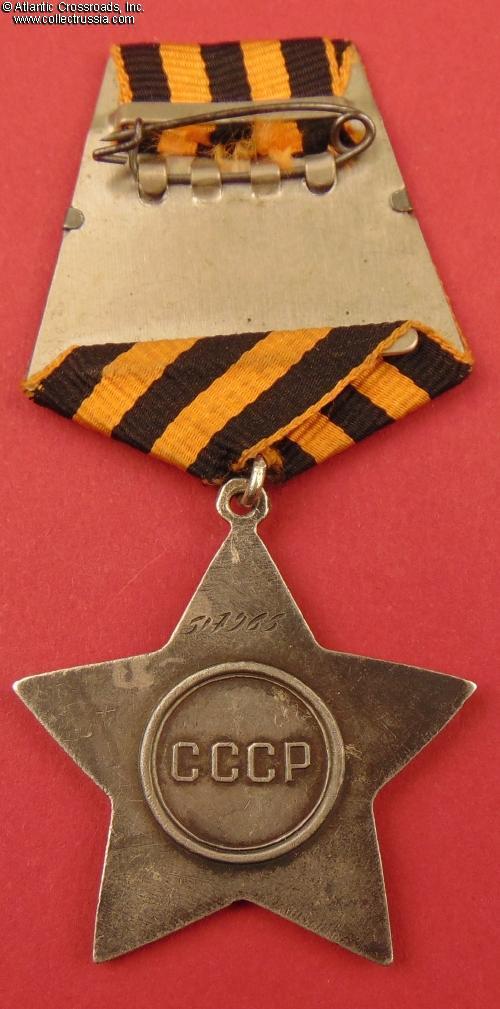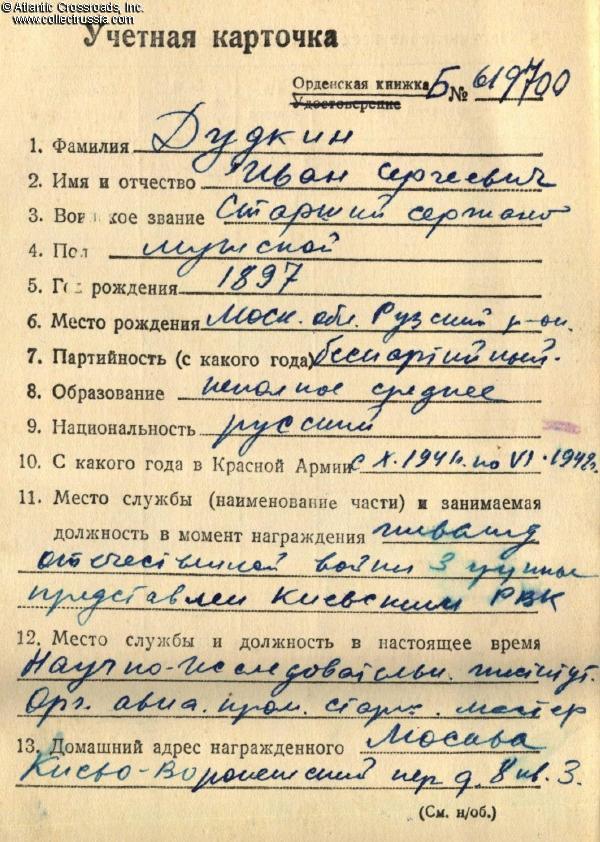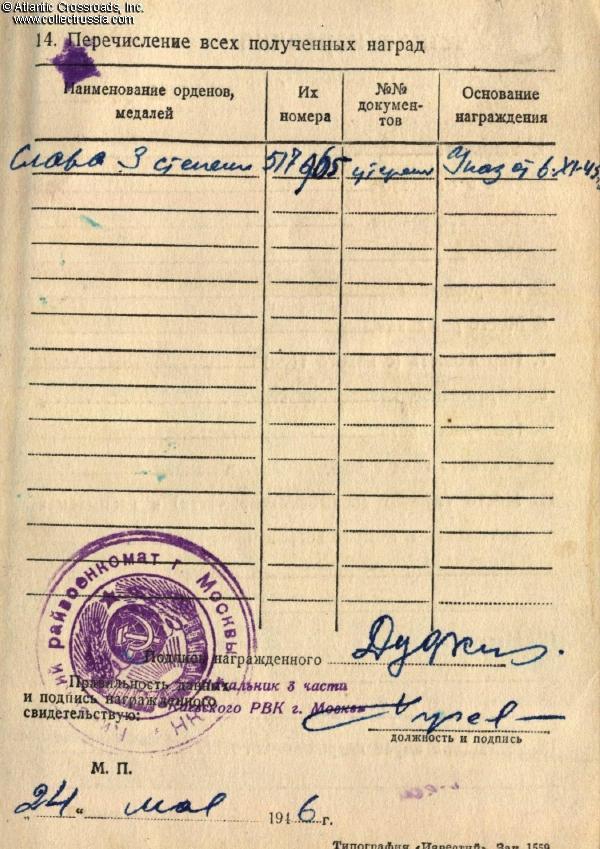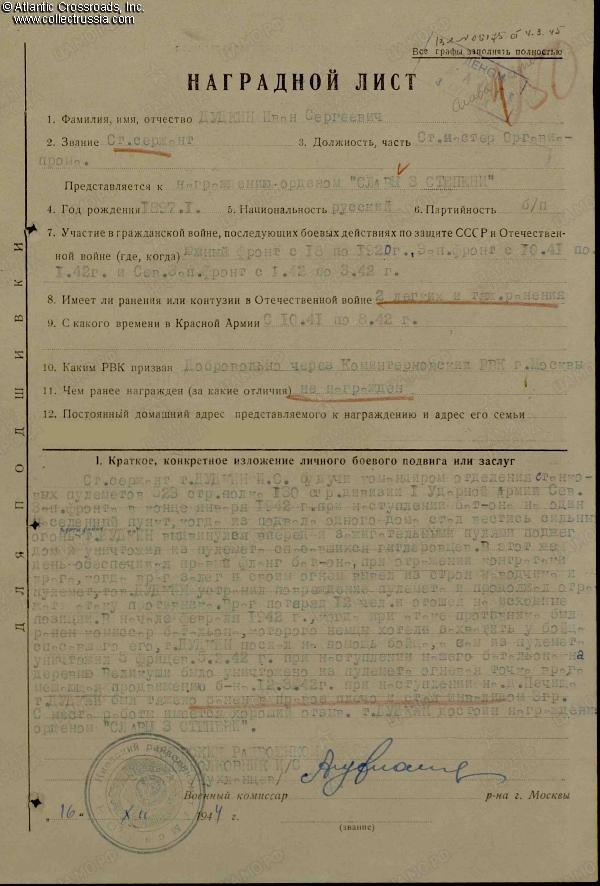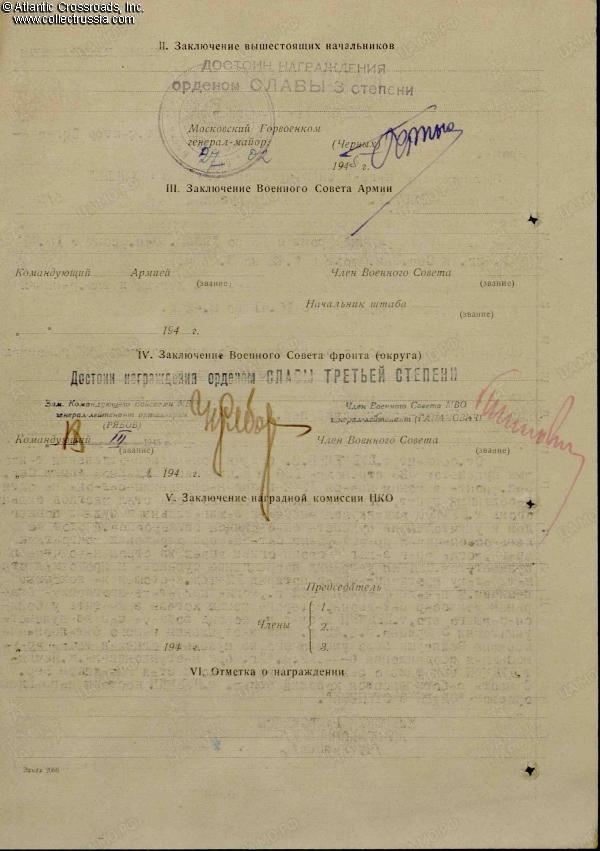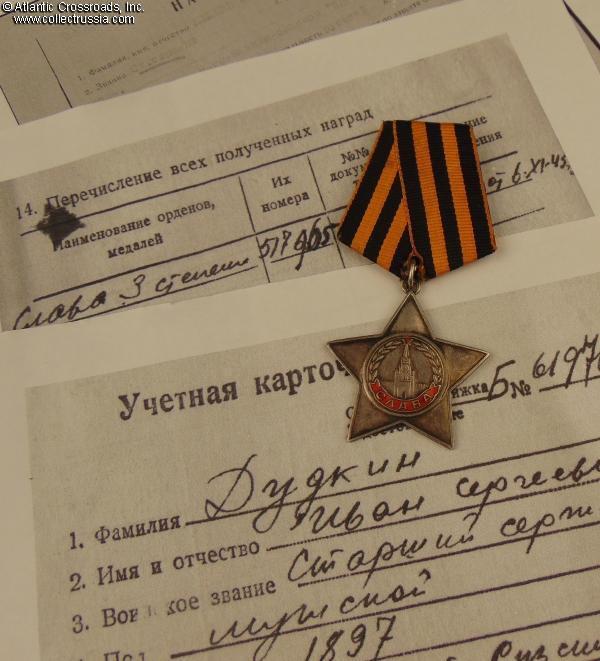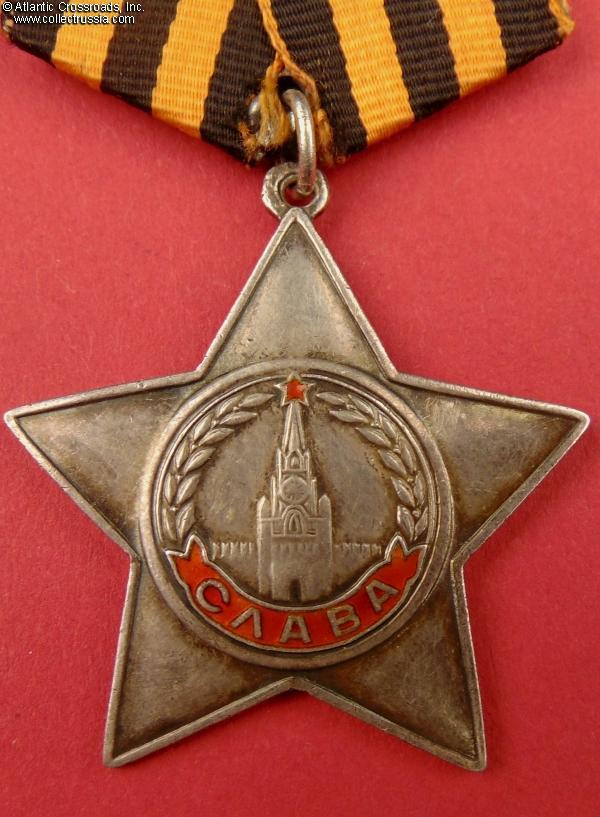
Order of Glory, 3rd class, Type 2, #517965, awarded on 6 November 1945 to Senior Sergeant Ivan Dudkin (Иван Сергеевич Дудкин), formerly a Heavy Machine Gun Squad Commander with the 523rd Rifle Regiment, 130th Rifle Division, 1st Shock Army, Northwestern Front.
Silver, enamels; 47.9 mm in height (incl. eyelet), 45.4 mm in width; weighs 21.9 g without the suspension and connecting link. Features the clock showing the 9:00 time. The central arch of the Kremlin tower below the clock has three outlines. The raised outer band on the reverse is much thicker than the inner band.
In outstanding, excellent condition. The enamel appears perfect to the naked eye, shows a beautiful luster, and has only a few microscopic contact marks completely invisible without magnification. The center medallion is likewise essentially pristine, its raised
Silver, enamels; 47.9 mm in height (incl. eyelet), 45.4 mm in width; weighs 21.9 g without the suspension and connecting link. Features the clock showing the 9:00 time. The central arch of the Kremlin tower below the clock has three outlines. The raised outer band on the reverse is much thicker than the inner band.
In outstanding, excellent condition. The enamel appears perfect to the naked eye, shows a beautiful luster, and has only a few microscopic contact marks completely invisible without magnification. The center medallion is likewise essentially pristine, its raised details perfect and exceptionally crisp; note that even all the numerals on the clock are still clearly visible. There is a very attractive patina to silver on both sides.
Comes on an original suspension device, a WW2 two-layer model in steel with a self-locking pin. The perfectly preserved, clean ribbon is old and likely original to the award. The connecting link appears to be original as well; its ends are still joined with solder.
Ivan Dudkin was born in 1897 in a village near Moscow. In October 1941, as the Germans were approaching the Soviet capital, he joined the Red Army as a volunteer. He initially served with the Southern Front and later, Eastern and Northwestern Fronts, reaching the rank of Senior Sergeant by 1942.
Much later, in December 1944 when he was already out of the military, Dudkin was recommended for the Order of Glory, 3rd cl. by the military commissar of the Kievskiy District of Moscow, who apparently served as an officer in Dudkin's battalion in the early part of 1942. According to the commendation, Dudkin commanded a heavy machine gun squad with the 523rd Rifle Regiment, 130th Rifle Division, 34th Army, Northwestern Front during the Soviet general offensive of early 1942. In January of that year, Dudkin used incendiary rounds to set on fire a house turned into a weapon nest by the Germans and then eliminated enemy soldiers as they scattered out of the burning house. Later that day, he covered the right flank of his battalion during the enemy counterattack. When his machine gun was damaged and his gun layer taken out of action, Dudkin repaired the machine gun and continued to fire, killing 12 German soldiers and forcing the rest to retreat.
Early next month, when his division was deployed against the German Demyansk pocket, Dudkin saved a wounded commissar of his battalion from being captured by the enemy when he rushed to help another soldier attempting to carry the commissar to safety. In that skirmish alone, Dudkin killed five German soldiers. On 5 February, as his battalion was storming the village of Velikushi (located west of Staraya Russa and Demyansk and east of Pskov), Dudkin destroyed a machine gun that had been thwarting the battalion's advance. On 12 March, he was seriously wounded in the shoulder during an assault on the village of Pechishchi. The wound, his third and final combat injury of the war, made him an invalid. He was discharged from the military during the next month of April. His disability none withstanding, by late 1944 he was working as a senior foreman in an aviation research institute in Moscow. The Order of Glory bestowed upon him on 6 November 1945, almost a year after the initial recommendation, remained his only decoration of WW2.
Archival Research: photocopy of the award commendation and award card.
$225.00 Add to cart

